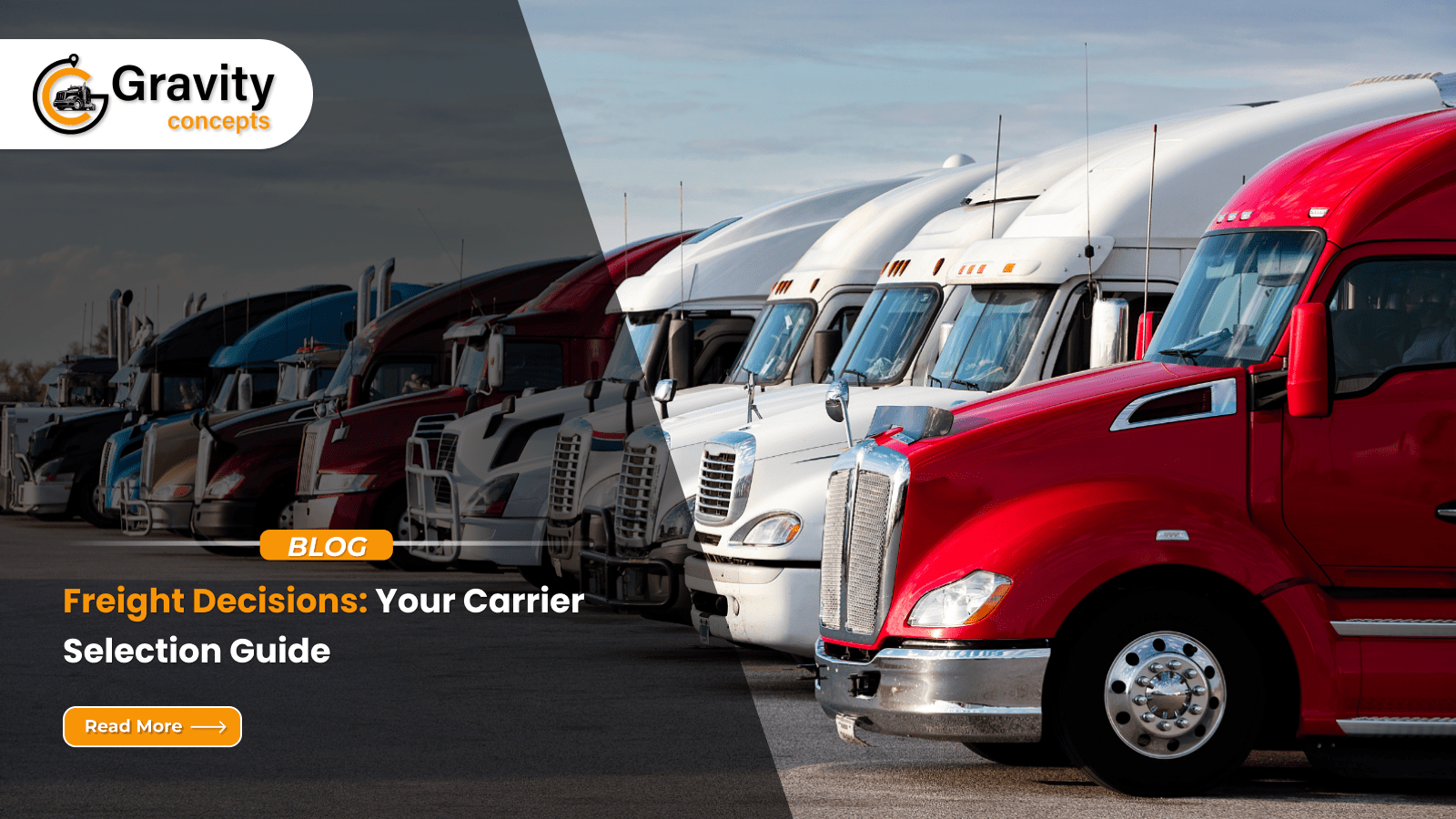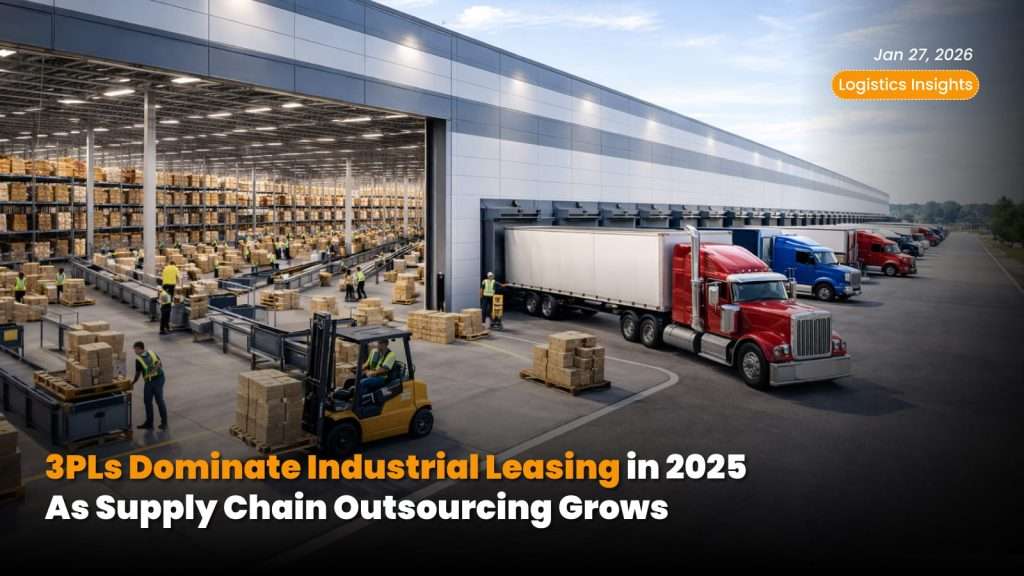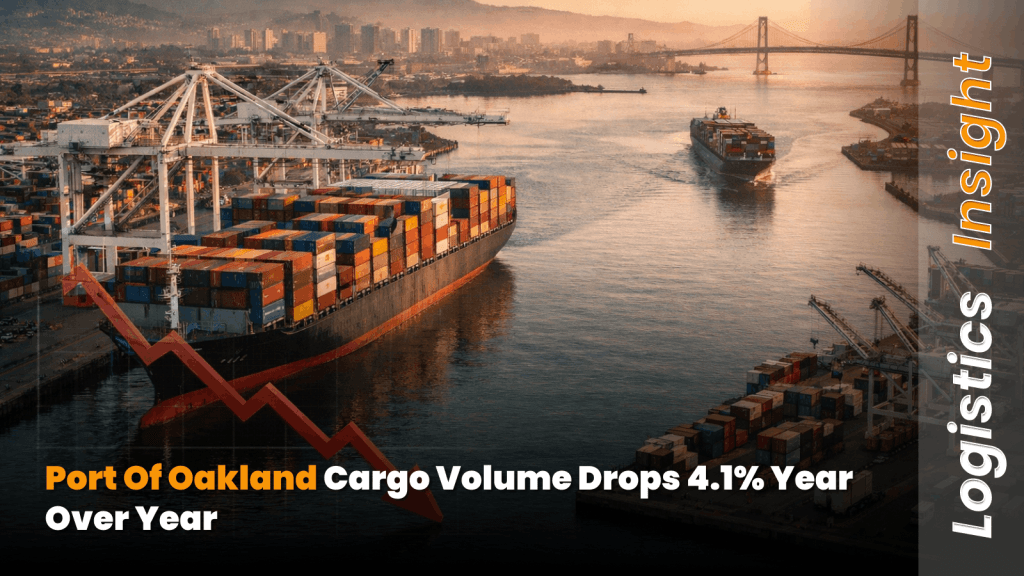
Freight Decisions: Your Carrier Selection Guide
In freight logistics, your transportation provider can either smoothen operations or cause delays. Transportation providers are expected to transport goods and do so competently in a timely manner. That all comes down to efficient carrier selection.
In this guide, we outline how to choose a freight carrier, the importance of carrier pre-selection, and the role specialization like power only trucking services and others have in today’s logistics strategies.
What is Carrier Selection?
Carrier selection is the process that associates evaluation with a business’s freight transportation provider in terms of its suitability to the business needs. It involves not just picking out a carrier with the cheapest price, rather looking to strike out a more suitable balance between cost, service reliability, coverage area, compliance and long term value for partnership.
Every business is facing problems of tight delivery windows, ever-increasing customer expectations coupled with the constantly rising prices of shipping. This therefore means that making the right carrier choices adds value to the company which in turn improves the reputation of the brand.
The Importance of Carrier Pre Selection
They assist in narrowing down the data collection and analysis processes. This is the step where you streamline your potential carriers with the following must-haves:
- Possession of relevant licensing and insurance.
- Past safety record and compliance history.
- Basic service provisions, like certain types of loads and equipment.
- Conformance to your operations scope.
Businesses can improve their efficiency by pre eliminating some of the unqualified carriers. It also reduces the chances of forming unreliable partnerships in the future. Pre-selection prepares your list from the start without wasting time in evaluating unfit candidates.
Most Important Evaluations for Carrier Selection
Assessing and comparing carriers is no easy task. Here are the most critical ones to zero in on:
- Capability of Service
Different carriers have different freight specializations. Check whether they can carry your specific goods, especially if the goods are sensitive to temperature changes, oversized, or high value items. For businesses that have their own trailers, confirm whether the carriers provide power only trucking, which is a truck and driver without a trailer.
- Geographic Coverage
Make sure the carrier operates in all the areas covered by your business. For cross-country or international logistics, you will need to work with carriers who understand the routes, customs, and region-specific laws.
- Performance History
Evaluate metrics like delivery punctuality, service incidents, damage and loss claims, and their problem resolution timelines. If need be, ask for client references so that you can verify the reliability of service delivery.
- Fleet and Equipment
Inquire about the condition of the fleet, age of the vehicles, their servicing schedules, and whether there is specialized equipment. A fleet that is properly serviced lowers breakdown risk which, in turn, means that your freight will be delivered on time.
- Technology and Tracking
Real-time updates and seamless system integration is crucial for modern freight businesses. The best carriers offer proactive management with automated instructions relative to the customer’s ERP or TMS. Update instructions need to be automated for proactive management.
- Pricing and Contract Flexibility
Flexibility on contract terms is often useful for shifting shipping volumes. Ask for contracts featuring deeply outlined structures with clear base charges and discounts. Also add fuel surcharge, accessorial fees, as well as volume discounts.
- Customer Support and Responsiveness
Freight Logistics depend heavily on communication. A dependable carrier should have teams that can respond to day-to-day concerns, emergencies, changes in freight routing, and timing without delays.
Mistakes to Avoid When Choosing a Carrier
Even the seasoned logistics manager can be caught in these traps:
Selecting a carrier based on pricing only:- Choosing the cheapest option may lead to increased costs from a low-quality carrier’s unreliability due to delays or claims.
Ignoring industry specialization:- Not every provider offering power only trucking services has experience with your type of trailer or lane.
Skipping pre selection steps:- Rushing into contracts without thorough vetting of carrier credentials and insurance puts your supply chain at risk.
Deficient SLAs:- Without a service-level agreement, there is no oversight to provide accountability when performance and timelines drop.
Not planning for scale:- Plan for scaling both in volume and complexity.
Developing Strategic Carrier Partnerships
Continued performance monitoring, clear metrics, and open lines of communication builds strong partnerships to foster over time. As your business needs advance, flexible partners are critical to achieving long-term objectives.
Choosing a carrier is more than a routine job in logistics; it’s an aircraft carrier-level decision that impacts your operations and customer relations. In the contemporary logistics environment, With power-only trucking service and other specialized freight services, you can select and evaluate relevant performance metrics which ensure reliable and scalable logistics solutions.
Your freight is not simply freight; it’s an agreement you owe your customer. Therefore, choose a number one partner today.




Comments are closed